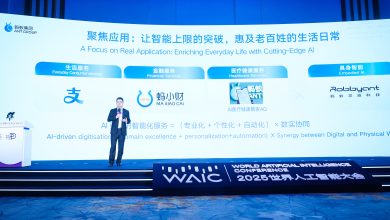Red Hat Enterprise Linux AI Now Generally Available for Enterprise AI Innovation in Production
This Innovation Combines Open, More Efficient Models with Accessible Model Alignment, Extending the Possibilities of AI Innovation Across the Hybrid Cloud

Red Hat, Inc., the world’s leading provider of open source solutions, has announced the general availability of Red Hat Enterprise Linux AI (Artificial Intelligence) across the hybrid cloud. Red Hat Enterprise Linux AI is Red Hat’s foundation model platform that enables users to more seamlessly develop, test, and run generative AI (gen AI) models to power enterprise applications. The platform brings together the open source-licenced Granite large language model (LLM) family and InstructLab model alignment tools, based on the Large-scale Alignment for chatBots (LAB) methodology, packaged as an optimised, bootable RHEL image for individual server deployments across the hybrid cloud.
While gen AI’s promise is immense, the associated costs of procuring, training and fine-tuning LLMs can be astronomical, with some leading models costing nearly USD $200 million to train before launch. This does not include the cost of aligning for the specific requirements or data of a given organization, which typically requires data scientists or highly-specialised developers. No matter the model selected for a given application, alignment is still required to bring it in-line with company-specific data and processes, making efficiency and agility key for AI in actual production environments.
“For gen AI applications to be truly successful in the enterprise, they need to be made more accessible to a broader set of organizations and users and more applicable to specific business use cases. Red Hat Enterprise Linux AI provides the ability for domain experts, not just data scientists, to contribute to a built-for-purpose gen AI model across the hybrid cloud, while also enabling IT organisations to scale these models for production through Red Hat OpenShift AI,” said Joe Fernandes, Vice President and General Manager, Foundation Model Platforms, at Red Hat.
Red Hat believes that over the next decade, smaller, more efficient and built-to-purpose AI models will form a substantial mix of the enterprise IT stack, alongside cloud-native applications. But to achieve this, gen AI needs to be more accessible and available, from its costs to its contributors to where it can run across the hybrid cloud. For decades, open source communities have helped solve similar challenges for complex software problems through contributions from diverse groups of users; a similar approach can lower the barriers to effectively embracing gen AI.
Red Hat Enterprise Linux AI: An Open Source Approach to Gen AI
These are the challenges that Red Hat Enterprise Linux AI intends to address—making gen AI more accessible, more efficient, and more flexible to CIOs and enterprise IT organisations across the hybrid cloud. Red Hat Enterprise Linux AI helps:
- Empower gen AI innovation with enterprise-grade, open source-licensed Granite models, and aligned with a wide variety of gen AI use cases.
- Streamline aligning gen AI models to business requirements with InstructLab tooling, making it possible for domain experts and developers within an organisation to contribute unique skills and knowledge to their models even without extensive data science skills.
- Train and deploy gen AI anywhere across the hybrid cloud by providing all of the tools needed to tune and deploy models for production servers wherever associated data lives. Red Hat Enterprise Linux AI also provides a ready on-ramp to Red Hat OpenShift AI for training, tuning and serving these models at scale while using the same tooling and concepts.
Red Hat Enterprise Linux AI is also backed by the benefits of a Red Hat subscription, which includes trusted enterprise product distribution, 24×7 production support, extended model lifecycle support and Open Source Assurance legal protections.

Red Hat Enterprise Linux AI Extends Across the Hybrid Cloud
Bringing a more consistent foundation model platform closer to where an organisation’s data lives is crucial in supporting production AI strategies. As an extension of Red Hat’s hybrid cloud portfolio, Red Hat Enterprise Linux AI will span nearly every conceivable enterprise environment, from on-premise datacenters to edge environments to the public cloud. This means that RHEL AI will be available directly from Red Hat, from Red Hat’s original equipment manufacturer (OEM) partners and to run on the world’s largest cloud providers, including Amazon Web Services (AWS), Google Cloud, IBM Cloud, and Microsoft Azure. This enables developers and IT organisations to use the power of hyperscaler compute resources to build innovative AI concepts with Red Hat Enterprise Linux AI.
“IBM is committed to helping enterprises build and deploy effective AI models, and scale with speed. Red Hat Enterprise Linux AI on IBM Cloud is bringing open source innovation to the forefront of gen AI adoption, allowing more organizations and individuals to access, scale, and harness the power of AI,” said Hillery Hunter, CTO and General Manager of Innovation at IBM Infrastructure. “With Red Hat Enterprise Linux AI bringing together the power of InstructLab and IBM’s family of Granite models, we are creating gen AI models that will help clients drive real business impact across the enterprise.”
Availability
Red Hat Enterprise Linux AI is generally available now via the Red Hat Customer Portal to run on-premise or for upload to AWS and IBM Cloud as a “bring your own subscription” (BYOS) offering. Availability of a BYOS offering on Azure and Google Cloud is planned in Q4 2024 and RHEL AI is also expected to be available on IBM Cloud as a service later this year.
Red Hat plans to further expand the aperture of RHEL AI cloud and OEM partners in the coming months, providing even more choice across hybrid cloud environments.
Additional Resources
- Find out more about Red Hat’s and Dell’s efforts to power open source AI workloads.
- Read more about RHEL AI.
- Learn how RHEL AI makes trying LLMs easier.
- Watch a video about how RHEL AI helps make gen AI more accessible.
Connect with Red Hat
- Learn more about Red Hat.
- Get more news in the Red Hat newsroom.
- Read the Red Hat blog.
- Follow Red Hat on Twitter.
- Follow Red Hat on Instagram.
- Watch Red Hat videos on YouTube.
- Follow Red Hat on LinkedIn.




